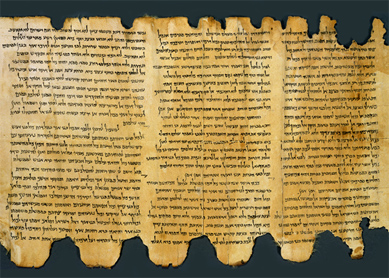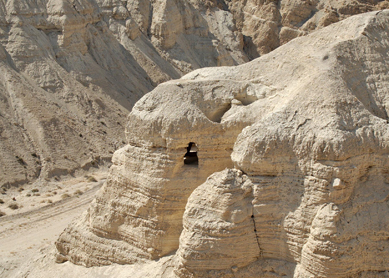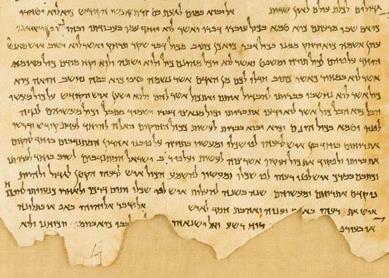The Essenes have been controversial probably since Josephus and some other ancient authors first began writing about them. There’s only been a little confusion as to who they were, where their name came from. We know that they’re mentioned by Pliny and by Philo and by Josephus. We know Josephus claims to have been one, right, Josephus does this great thing of how do you know which religion is the best; well you just try them all; so Josephus claims to have been a Pharisee and a Saducee and an Essene. And in his description of the Essenes, he talks about how they are obsessed with ritual purity how they are…how they are an ascetic group, they celebrate a lack of wealth they are just…they take the Torah and the teachings very seriously, they are very strict, very observant, very pious. But, he also mentions that they’re spread out. But we have other places that other ancient authors talk about how they congregate together, so there is some diversity of opinion in antiquity about how these guys live, what they were like, you know, where they came from, etc. etc.
One suggestion is that the Essenes were actually a splinter group from the Zadokite priesthood. Whoever wrote the Dead Sea Scrolls weren’t big fans of the priesthood in Jerusalem and yet, they’re always talking about ritual purity, they’re talking about observing the Torah; they even envision their own alternative temple. So, they appear to be Zadokites, you know, some suggest Saducees, but they certainly didn’t like the temple in Jerusalem, so maybe they were a splinter group that then observed and practiced in the ways that a Zadokite priest would but they didn’t have access to the temples; so they developed their own system. That’s one suggestion as to who they were.
Josephus lays out different views of the universe for the Pharisees, the Saducees and the Essenes. He says the Saducees believe in free will; they are responsible for their own, plight in life, for their own status. The Pharisees are kind of half and half, they believe in free will, they believe in fate; you know, they’re kind of in the middle; and the Essenes were predeterminists, they were fatalists: it’s all in the stars, it’s all predetermined.
I find it quite interesting that this corresponds to their socioeconomic class; so maybe we would expect people who are incredibly wealthy—and the Saducees were obviously the priestly elite in the city, in Jerusalem—We might expect people who are incredibly successful to want to take credit for that success, so they would say, I worked hard for this, it’s all about free will; I did this. Likewise, we might expect, uh, a very poor socioeconomic group to have an affinity for predeterminism; that is it’s not my fault, I know I’m poor, life is terrible and you know what, that’s just the way it is, it’s fate, you know it’s not my fault, you know. So, I find it quite interesting that Josephus lays these out and they just happen to correspond to socioeconomic classes. The poor Essenes are fatalists and the Saducees want to take credit for their success.




